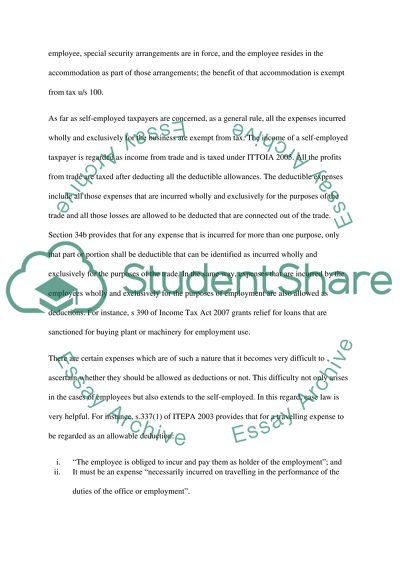Cite this document
(“The rules on the deduction of expenses for employed and self-employed Essay”, n.d.)
The rules on the deduction of expenses for employed and self-employed Essay. Retrieved from https://studentshare.org/law/1487008-the-rules-on-the-deduction-of-expenses-for
The rules on the deduction of expenses for employed and self-employed Essay. Retrieved from https://studentshare.org/law/1487008-the-rules-on-the-deduction-of-expenses-for
(The Rules on the Deduction of Expenses for Employed and Self-Employed Essay)
The Rules on the Deduction of Expenses for Employed and Self-Employed Essay. https://studentshare.org/law/1487008-the-rules-on-the-deduction-of-expenses-for.
The Rules on the Deduction of Expenses for Employed and Self-Employed Essay. https://studentshare.org/law/1487008-the-rules-on-the-deduction-of-expenses-for.
“The Rules on the Deduction of Expenses for Employed and Self-Employed Essay”, n.d. https://studentshare.org/law/1487008-the-rules-on-the-deduction-of-expenses-for.


